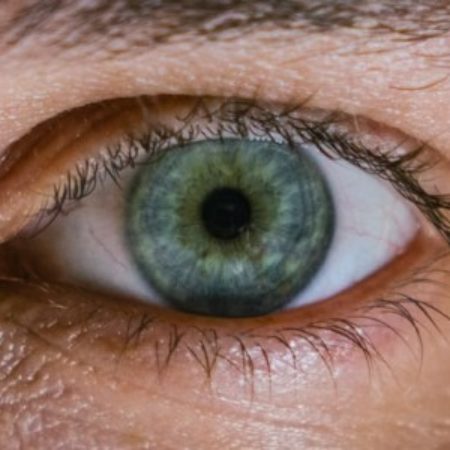For our recent elder Q&A, we received some Bible questions that we did not have time to answer. This week, therefore, I decided to try out using the Midweek Meditation for Bible Q&A. Here’s today’s question:
What does Matthew 6:22-23 mean? The NASB95 translation reads, “The eye is the lamp of the body; so then if your eye is clear, your whole body will be full of light. But if your eye is bad, your whole body will be full of darkness. If then the light that is in you is darkness, how great is the darkness!”
These verses have long puzzled Bible interpreters, so I sympathize with the asker’s straightforward question. In answer, let me emphasize certain good habits of Bible study. Understanding these verses requires attention to three important areas:
1. Context. All good Bible interpretation pays attention to a text’s surrounding words and ideas as this context generally sheds important light on a passage’s meaning. After all, the Bible is written as a purposeful flow of ideas and arguments, so we should ask: what does Jesus speak about before and after Mt 6:22-23? A quick glance at Mt 6:19-21 and 24 shows that Jesus is speaking in this section about wealth and how devotion to wealth is incompatible with devotion to God. In the wider context, Mt 6:1-18 contrasts fake righteousness’ obsession with earthly reward and true righteousness’ commitment to heavenly reward with God. Mt 6:25-34 also contrasts the life of one devoted to God with the life of one devoted to possessions: the God-seeker trusts God to provide for tomorrow’s needs while the possession-seeker is dominated by worry. All this context helps us to see that, whatever the exact meaning of Mt 6:22-23, Jesus is saying something to us here about wealth and the need to seek God over temporal and passing treasures.
2. Key Terms. As with appreciating context, digging more deeply to understand difficult or important words in a passage is another critical part of good Bible interpretation. Here, two key terms are the words translated “clear” and “bad.” The Greek word for “clear” (haplous) literally means “single” and figuratively means “single-minded, sincere, or straightforward.” The Greek term translated “bad” (poneros) means just that: “bad.” However, this badness could be either moral or qualitative, that is, bad in the sense of “wicked, evil” or in the sense of “poor quality, useless.” The latter idea would make sense for describing eyes: a useless eye is an unhealthy eye with no light. Meanwhile, though “single” is perhaps an odd way to describe good eyesight, the idea here possibly is of singular or clear vision.
There is another wrinkle, however: the phrase “evil eye” meant something specific to people at that time. To the ancients, an “evil eye” is an envious eye that resents and desires the material prosperity of others. We see “evil eye” (poneros ophthalmos), for example, used both in Mk 7:22 (translated “envy”) and Mt 20:15 (translated “envious eye”). Indeed, the idea of an envious eye fits very well with a passage talking about wrong devotion to wealth and possessions. In fact, several commentators think that Jesus is employing double meaning and wordplay here when talking about eyes: an eye that envies others is one that is also bad and cannot see clearly, while a sincere eye that does not regard the good of others with ulterior motives is the one with singular and whole vision!
3. Historical Context. One final important aspect of good interpretation worth mentioning for this passage has to do with historical background. We probably have difficulty understanding the metaphor Jesus uses regarding the eye as the lamp of the body. After all, we know that a lamp provides light, but don’t the eyes function more like windows than lamps, letting in light from the outside? And what’s all this about the light or darkness within a person? We are tripped up here because of our modern scientific understanding of vision. We understand that we can see because our eyes capture light from outside ourselves and transmit sensory information to the brain in such a way that our brain creates pictures of what our eyes detect.
The ancients, though, did not fully understand how vision worked and so described sight in phenomenological language, that is, how sight feels and appears. Eyes help you see and thus function like illuminating lamps. When you can’t see, it’s like your eyes are dark or dim (cf. Gen 27:1; 1 Sam 3:2; Isa 29:18). These are not scientifically accurate statements, but they do not attempt to be; they are accurate descriptions of feeling and appearance (like using the terms “sunrise” and “sunset,” which even we moderns use). Therefore, to understand Jesus’ metaphor, we must be careful not to import unnecessarily a modern understanding of vision into the text.
Conclusion: With the above three points in mind, what is Jesus teaching in Mt 6:22-23? It depends on whether we see the nature of the eyes as either cause or effect. Does having an envious outlook cause darkness of heart, or is the envious outlook the result of a dark heart? Because of Jesus’ statement about the heart and treasure in Mt 6:21, I take the latter view (though it’s also true that one’s outlook reinforces what is already in the heart). Jesus teaches us that how one views others and their wealth shows whether light or darkness is in the heart. If your eye, the lamp of your body, is sincere and bright, then your whole body must be full of light. But if your eye is envious and dark, then your whole body must be full of darkness. And if darkness is so clearly evident in your external outlook and actions, how bad must the dark idolatry be on the inside!
So then, in light of this teaching from Jesus, we must ask ourselves the following question: “How’s my eyesight?”

